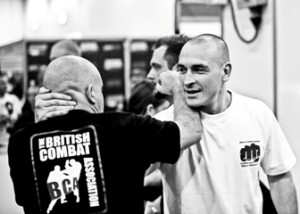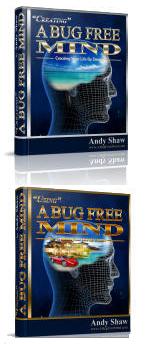Al Peasland (5th Dan with the British Combat Association, 3rd Dan Traditional Karate and internationally renowned teacher) wrote an interesting article on “Back To Basics”. In this article he compares an experience he had learning to ski with how he teaches self protection. He spent most of the time learning how to do “the plough” (position where the front of the skis point inwards, forming a triangular plough shape).
 Al asked why they spend so much time in the plough position when it is not the way that they do “real skiing”. The instructor explained that practicing the plough gives you control over the snow, when you have that, the rest of the fancy stuff can be mastered. But without control over over the snow, the ability to ski fast, turn and (most importantly) to be able to stop; will be very difficult to learn. When you see a good skier whizzing down a slop, skis parallel, twisting and turning around obstacles, you don’t see the plough. Yet without learning the plough first, you would not see the speed and agility.
Al asked why they spend so much time in the plough position when it is not the way that they do “real skiing”. The instructor explained that practicing the plough gives you control over the snow, when you have that, the rest of the fancy stuff can be mastered. But without control over over the snow, the ability to ski fast, turn and (most importantly) to be able to stop; will be very difficult to learn. When you see a good skier whizzing down a slop, skis parallel, twisting and turning around obstacles, you don’t see the plough. Yet without learning the plough first, you would not see the speed and agility.
So (as Al explains) it is with martial arts and self protection. Without learning the basic stances, basic techniques and sparring/drilling routines, you would not have a very a structure that you could use under pressure.
Although I am a further down the martial arts food chain than Al, I agree entirely. People often talk of “muscle memory”. However, muscles don’t have memory, only the brain does. When you do a movement, any movement, or even a particular behaviour pattern, you fire a series of tiny electrical signals across the brain. These are the parts of the brain that control that movement or behaviour. When you repeat a movement over and over, those tiny electrical signals get stronger and the brain forms more links inside to carry the stronger signals. This is called a “neural pathway” through the brain. It is here, rather than the muscle that the memory of movement is stored. The more we practice a movement over and over again, the stronger and bigger that neural pathway becomes, until eventually we no longer have to put in any conscious thought, we just fire the neural pathway and instinct takes over.
This is what we want when under pressure. We want such strong, deeply rooted neural pathways, that we don’t need to think about how to punch/strike/kick etc. We just want to be able to think this is it, action, and the rest just happens automatically. The main difference between a master and a beginner is not necessarily their strength or physical prowess, it is the strength of these neural pathways, forged by years and years of repetition.
People often look for the quick fix (which is human nature). Partly for that reason, pressure point fighting has become popular over recent years. However, as I’ve said before, if you don’t know how to hit, if you can’t move with speed and accuracy, you will not be able to strike pressure point targets effectively.
Whatever your style of martial art, practice basics, basics then some more basics. It is the only way to really be able to perform under pressure. I promote the use of practical bunkai on this blog, but without good basics you will struggle to make them work.
I liken it to the foundations of a building. The first thing the builders do is to dig a bloody great hole and fill it in with ugly cement and steel. When the nice new shiny building is finished, you don’t see those  foundations, you don’t see that hole and cement. You only see the building on top. But without that cement filled hole, the building would easily collapse. So it is when you see a great fighter performing great athletic feats, breaking boards, fancy jumping kicks or annihilating an opponent. You don’t see the years that the same fighter spent in a basic stance practicing a basic technique over and over again until he/she had a really deep foundation and incredibly strong neural pathways.
foundations, you don’t see that hole and cement. You only see the building on top. But without that cement filled hole, the building would easily collapse. So it is when you see a great fighter performing great athletic feats, breaking boards, fancy jumping kicks or annihilating an opponent. You don’t see the years that the same fighter spent in a basic stance practicing a basic technique over and over again until he/she had a really deep foundation and incredibly strong neural pathways.
And let face it, if it was easy to learn in a few weeks, then all the muggers and predators would have done it to, so they would know what we know. What sets us aside as martial artists is that we take the time to study and to evolve. And in so doing we not only become better able to defend ourselves, but we become better human beings in the process.



